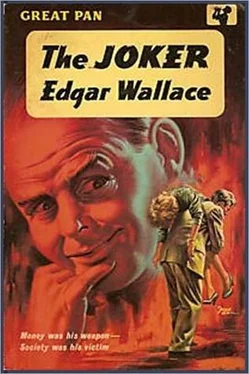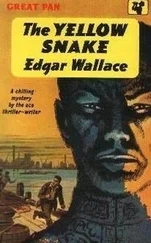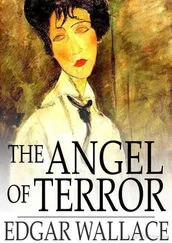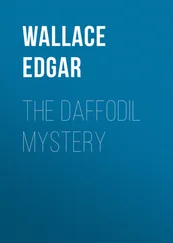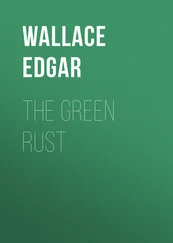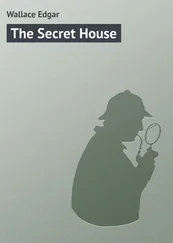Edgar Wallace - The Joker
Здесь есть возможность читать онлайн «Edgar Wallace - The Joker» весь текст электронной книги совершенно бесплатно (целиком полную версию без сокращений). В некоторых случаях можно слушать аудио, скачать через торрент в формате fb2 и присутствует краткое содержание. Год выпуска: 0101, Жанр: Старинная литература, на английском языке. Описание произведения, (предисловие) а так же отзывы посетителей доступны на портале библиотеки ЛибКат.
- Название:The Joker
- Автор:
- Жанр:
- Год:0101
- ISBN:нет данных
- Рейтинг книги:5 / 5. Голосов: 1
-
Избранное:Добавить в избранное
- Отзывы:
-
Ваша оценка:
- 100
- 1
- 2
- 3
- 4
- 5
The Joker: краткое содержание, описание и аннотация
Предлагаем к чтению аннотацию, описание, краткое содержание или предисловие (зависит от того, что написал сам автор книги «The Joker»). Если вы не нашли необходимую информацию о книге — напишите в комментариях, мы постараемся отыскать её.
The Joker — читать онлайн бесплатно полную книгу (весь текст) целиком
Ниже представлен текст книги, разбитый по страницам. Система сохранения места последней прочитанной страницы, позволяет с удобством читать онлайн бесплатно книгу «The Joker», без необходимости каждый раз заново искать на чём Вы остановились. Поставьте закладку, и сможете в любой момент перейти на страницу, на которой закончили чтение.
Интервал:
Закладка:
‘A wife!’ said the startled Marling, his hand trembling in his agitation. ‘I don’t want a wife—you know that!’
Mr Harlow lit a cigar.
‘Yes—but she doesn’t want a husband—I know THAT. Dreams, huh?’ He laughed to himself, the other man watching him curiously.
‘Do you ever dream?’ he asked with a timidity which was almost pathetic.
‘I? Lord, yes! I dream of jokes.’
Marling could not understand this: this strong man had talked about ‘jokes’ before, and when they were elaborated they had not amused anybody but Mr Harlow.
It is a peculiar trait of the English criminal that he never describes his unlawful act or acts by grandiloquent terms. Crime of all kind, especially crime against the person, is a ‘joke’. The man who holds up a cashier has ‘had a joke with him’; the confidence swindler ‘jokes’ his victim; a warehouse theft would be modestly described in the same way.
Mr Stratford Harlow once heard the term employed and never forgot it. This cant phrase so nearly covered his own mental attitude towards his operations; a good joke would produce the same emotions of mind and body.
Once he had written to an important rubber house offering to take its entire stock at a price which would show a fair profit to the seller. The house and its affiliated concerns smelt a forced buying and the price of rubber rose artificially.
He waited three months, buying everywhere but from the united companies and one night their stores illuminated the shipping of the Mersey.
That was a very good joke indeed. Mr Harlow chuckled for days, not because he had made an enormous fortune—the joke had to be there or the money had no value.
‘I don’t like your jokes,’ said Marling gravely.
‘I shouldn’t tell you about them,’ said Mr Harlow, suppressing a yawn; ‘but I have no secrets from you, Saul Marling. And I love testing them against your magnificent honesty. If you laughed at them as I laugh, I’d be worried sick. Come along to the roof for your walk and I’ll tell you the greatest joke of all. It starts with a dinner-party given in this house and ends with somebody making twenty millions and living happily ever after!’
It required a perceptible effort in Aileen to produce the paper she had found in the grate of Mr Harlow’s library.
She had the unhappy knowledge that whilst this big man had put her in her place, she hadn’t stayed there. She had gone down into deplorable depths. He might be anything that Jim believed, but on his own plane he had a claim to greatness.
When she reached that conclusion she felt that it was time to hand the paper to her companion.
‘I’m not going to excuse myself,’ she said frankly. ‘It was an abominable thing to do, and I won’t even say that I had you in my mind. It was just vulgar curiosity made me do it.’
They stopped under a street lamp and he opened the paper and read the message.
‘Marling!’ he gasped. ‘Good God!’
‘What is it?’
The effect of those scribbled words upon her companion astounded her. Presently he folded the paper very carefully and put it in his pocket.
‘Marling, Ingle, Mrs Gibbins,’ he said, in his old bantering mood. ‘Put me together the pieces of this jigsaw puzzle; and connect if you can the note of this Mr Marling, who wishes to retain his writing materials; your disreputable uncle who has developed a craze for film projecting; fit in the piece which stands for Mrs Gibbins and her beloved William Smith; explain a certain letter that was never posted and never delivered, yet was found in a frozen puddle—I nearly said puzzle!—and make of all these one intelligible picture.’
‘What on earth are you talking about?’ she asked helplessly.
He shook his head.
‘You don’t know! Elk doesn’t know. I’m not so sure that I know, but I wish the next ten days were through!’
CHAPTER 12
FOR SOME reason which she could not explain to herself, Aileen was irritated.
‘Do you realise how horribly mysterious you are?’ she asked, almost tartly. ‘I always thought that the mystery of detectives was an illusion fostered by sensational writers.’
‘All mystery is illusion,’ he said grandly.
They had reached Oxford Street.
‘Have you ever been to the House of Commons?’ he asked her suddenly.
She shook her head.
‘No.’
‘Then come along. You’ll see something more entertaining than a film or a play, but you will hear very little that hasn’t been said better elsewhere.’
The House was in session, though she was only dimly aware of this, for she belonged to the large majority of people to whom the workings of Parliament were a closed book. Jim, on the contrary, was extraordinarily well informed in political affairs and favoured her with a brief dissertation on the subject. The old hard and fast party spirit was moribund, he said. The electorate had grown too flexible for any machine to control. There had been surprising results in recent by-elections to illustrate a fact so disconcerting to party organizers. The present Government, she learnt, despite its large majority, was on its last legs. There was dissension within the Cabinet, and rebel caves honey-combed the Government party.
In truth she was only faintly interested. But the approach to the Commons was impressive. The lofty hall, the broad stairway, the echoing lobby with its hurrying figures, and the mystery of what lay behind the door at one end, brought her a new thrill.
Jim disappeared and returned with a ticket. They passed up a flight of stairs and presently she was admitted to one of the galleries.
Her first impression was one of disappointment. The House was so much smaller than she had expected. Somebody was talking; a pale bald man, who rocked and swayed slowly as he delivered himself of a monotonous and complaining tirade on the failure of the Government to do something or other about the Basingstoke Canal. There were only a few dozen members in the House, and mainly they were engaged in talking or listening to one another, and apparently taking no notice of the speaker. On the front bench three elderly men sat, head to head, in consultation.
Mr Speaker in his canopied chair seemed the only person who was taking a keen interest in the member’s oration.
Even as she looked, the House began to fill. A ceaseless procession of men trooped in and took their places on the benches, stopping as they passed to exchange a word with somebody already seated. The orator still droned on; and then Jim pressed her arm and nodded.
From behind the Speaker’s chair had come a man whom she instantly recognised as Sir Joseph Layton, the Foreign Minister. He was in evening dress except that he wore, instead of the conventional dinner jacket, one of black velvet.
He sat down on the front bench, fingered his tiny white moustache with a characteristic gesture, and then the member who had been speaking sat down. Somebody rose from one of the front benches and asked a question which did not reach the girl. Sir Joseph jerked to his feet, his hands gripping the lapels of his velvet coat, his head on one side like an inquisitive sparrow, and she listened without hearing to his reply. His voice was husky; he had a dozen odd mannerisms of speech and gesture that fascinated her. And then Jim’s hand touched her.
‘I’m going down to see him. Will you wait for me in the lobby?’ he whispered and she nodded.
It was ten minutes before the Foreign Minister came out of the House, greeted the detective with a wave of his hand and put his arm in Jim’s.
‘Well, what is the news?’ he asked, when they reached his private room. ‘Harlow again, eh? Something dark and sinister going on in international circles of diplomacy?’
Читать дальшеИнтервал:
Закладка:
Похожие книги на «The Joker»
Представляем Вашему вниманию похожие книги на «The Joker» списком для выбора. Мы отобрали схожую по названию и смыслу литературу в надежде предоставить читателям больше вариантов отыскать новые, интересные, ещё непрочитанные произведения.
Обсуждение, отзывы о книге «The Joker» и просто собственные мнения читателей. Оставьте ваши комментарии, напишите, что Вы думаете о произведении, его смысле или главных героях. Укажите что конкретно понравилось, а что нет, и почему Вы так считаете.
